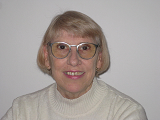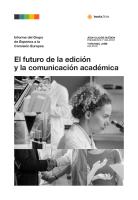Books2bits reading formats:
Free and open reading: links on the page of each book
PDFs direct sales (directs to a Google form)
E-books on Amazon
Printed at Servicop and bookstores distributor Bibliomanager
Themes of the Collection
The Open Science Collection offers authors space in three publication themes, one dedicated to analysis, studies, methodologies, and policies on Open Science and aspects related to equitable access to knowledge. The second theme is of an instrumental type aimed at the dissemination of practices, tools, and techniques for scientific collaboration in the field of data, instruments, protocols, and results. A third line offers space for the dissemination of scientific projects designed with an open science approach.
Disciplinary areas
The topics indicated may focus on the most widespread scientific disciplines. We are also interested in those inter, transdisciplinary and emerging such as Library Science and Documentation, Ancestral Knowledge, Human and Civil Rights, Sexual Diversities, Alternative Economies, Open Government, Digital Humanities, Migrations, Problems of people with disabilities, and Sustainability.
Director: Mela Bosch

I studied Literature in the '70s at the National University of the Argentine Northeast where I was born. At that university, I did an assignment in Linguistics, already interested in the logical representation of natural language. Then I went to Buenos Aires and in an Environmental Information Center in 1980, I found myself in front of a huge computer entering COBOL codes of thematic codes to describe sources of environmental information. This is how I entered, through the door of controlled languages, into the then-nascent world of computing, and I was immediately passionate about it. There were few of us who worked on the treatment of the meaning of words by computational means in the Spanish language and not only in my country but in the world.
A few years later, in 1988, I had the possibility as a linguist and cooperating with a pioneering team to develop the first intelligent controlled language in the Spanish language based on an expert system for thematic retrieval to manage a collection of magazines in Spanish in full text, it was about The Law on CD ROM. We follow the directives of Father Busa, an Italian then living in the United States, who developed the first questionable and taxonomized databases of full computerized text in the world. These experiences are today considered pioneers of what is now called Digital Humanities.
I continued developing semantic supports for databases and also terminological bases on different topics, both for private companies and for the national administration. At the same time, I taught at universities such as the Argentine Catholic University, in its Computer Science Faculty, and that of Mar del Plata in the Documentation Department. I was a full professor in the Department of Library Science at the National University of La Plata, where I followed a Master's Degree in Software Engineering at the Faculty of Informatics.
In the 21st century, I moved to live in Europe, in northern Italy. I did a specialization in Digital Documents at the Jaume I University of Barcelona and continued working with Italian companies.
Over the years I have published numerous articles, contributions, and lectures, a book, and book chapters, becoming familiar with publishing as an author, experiencing first-hand the demands of quality in publication as well as the visibility and dissemination benefits of portals. and open access repositories.
I returned to Argentina when I won by national competition the position of Director of the Center for Scientific and Technological Information (CAICYT-CONICET). This center with more than 50 years of excellence is the headquarters of the international registry of serial publications and a reference and registry center for regional and international systems of scientific publications. So I could, not just as an author. but also in the management role and in contact with researchers from all disciplines, facing the complexity of the quality problem and the standards of refereed publishing, as well as experiencing the challenges that the digital world imposes for publications scientific for its editors and for researchers who wish to publicize their work.
I now reside again in Italy, near Lake Como where I dedicate myself to my garden, yoga, and hiking in the mountains and all this would not be complete without the challenge to experience and imagination of directing a collection on the theme of Open Science that seeks to facilitate collaboration on data, results, and protocols. With an approach oriented to equitable access to knowledge, giving rise to Spanish as a language of scientific communication with its cultural diversity, in digital platforms sensitive to different devices, accessible to people with disabilities, and offering space to emerging disciplinary issues within the framework of the quality and thoroughness of the edition and the sources. I am happy to go down this road with Book2bits.

Books2bits reading formats:
Free and open reading: links on the page of each book
PDFs direct sales (directs to a Google form)
E-books on Amazon
Printed at Servicop and bookstores distributor Bibliomanager
 Licencia Creative Commons Atribución – No Comercial – Sin Obra Derivada 4.0 Internacional
Licencia Creative Commons Atribución – No Comercial – Sin Obra Derivada 4.0 Internacional
Argentina: Calle 69 n 1083 e/ 16 y 17 | (1900) La Plata | Province of Buenos Aires
Mare de Deu de Lorda, 45, Primero | (08033) Barcelona | España
Email: editorialbooks2b@gmail.com
Phone: +34 671 47 35 71
Made with OMP Open Monograph Press
Owner: Hermes Data S. A. de C. V.
Intellectual Property Registration pending
